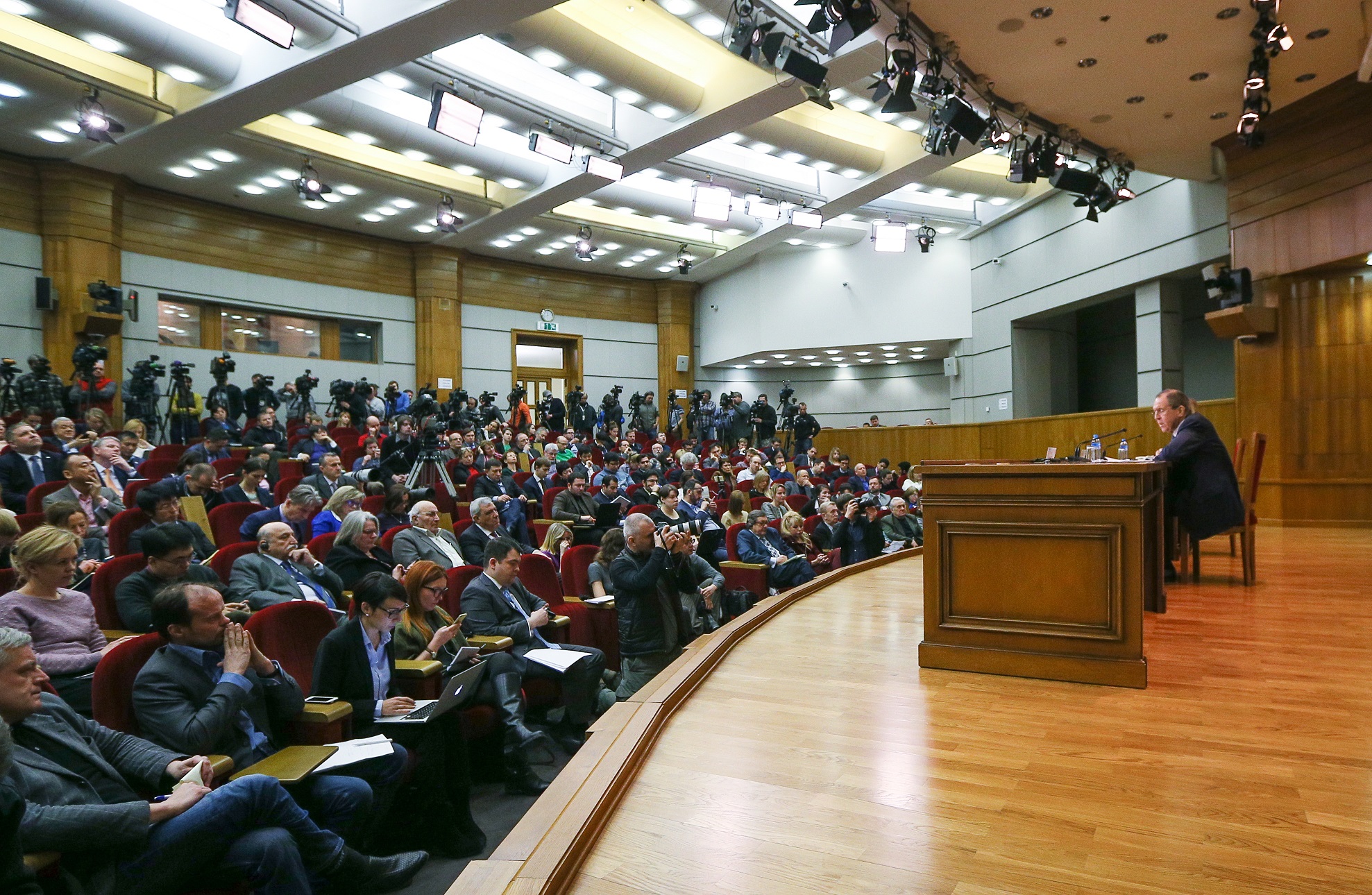ID :
395016
Tue, 01/26/2016 - 12:38
Auther :
Shortlink :
https://oananews.org//node/395016
The shortlink copeid
Russia urges not to isolate North Korea from nuclear talks - Lavrov

MOSCOW, January 26. /TASS/. Moscow has doubts that North Korea recently tested a hydrogen bomb, Russian Foreign Minister Sergey Lavrov said at a press conference on the results of the past year on Tuesday.
"I expect that it is possible to solve the nuclear problem of the Korean peninsula and not of North Korea because the task is not to ensure that North Korea has no nuclear weapons but to ensure that there are no such weapons on the peninsula at all and the United States should not bring nuclear arsenal elements there," the Russian foreign minister said.
"We’re consulting with the United States, China, Japan and South Korea on what it was," the foreign minister said.
"We’re not sure that this was the test of a hydrogen bomb. If this had been so, this would have meant that UN Security Council resolutions liming the delivery of such elements to North Korea are ineffective and that additional materials, without which this bomb can’t be created, are getting into North Korea," Lavrov said.
"If this was the test of a normal nuclear device, this would mean that our restrictions have their effect," he added.
"In our contacts with our colleagues, we are now actively studying this aspect of the situation. Politically, the sole way is to resume six-party talks," the Russian foreign minister said.
Pyongyang’s refusal from nuclear weapons until the resumption of talks would be "the simplest solution but this is unrealistic," the Russian foreign minister said.
"We have heard a proposal from South Korea to gather in the "six minus one" format but this is not a good idea, Lavrov said.
"It will turn out again that we’re trying to isolate someone. When attempts were made to isolate Iran, nothing good came out of this. This mistake shouldn’t be repeated relative to North Korea," the Russian foreign minister said.
The six-party talks with the participation of South Korea, the United States, China, Russia and Japan aimed at persuading North Korea to give up its nuclear program yielded no results in late 2008.
After that, North Korea successfully carried out its second and third underground nuclear tests in 2009 and 2013.
Experts say North Korea may provide its "nuclear deterrence forces" with about a hundred of nuclear bombs already by 2020.
Formally, the six-party talks on the North Korea nuclear problem are not considered as cancelled.
North Korea announced on January 6 that it had successfully tested a hydrogen bomb. Pyongyang said in a statement that the test had been carried out "exclusively for the purposes of self-defense for the reliable protection of the country’s sovereignty and the nation’s vital rights amid the growing nuclear blackmail and threats from the US-led forces alien to North Korea."
In recent years, North Korea has held three nuclear tests: in 2006, 2009 and 2013. In response, the UN Security Council imposed new or tightened existing sanctions against Pyongyang.
Read more





